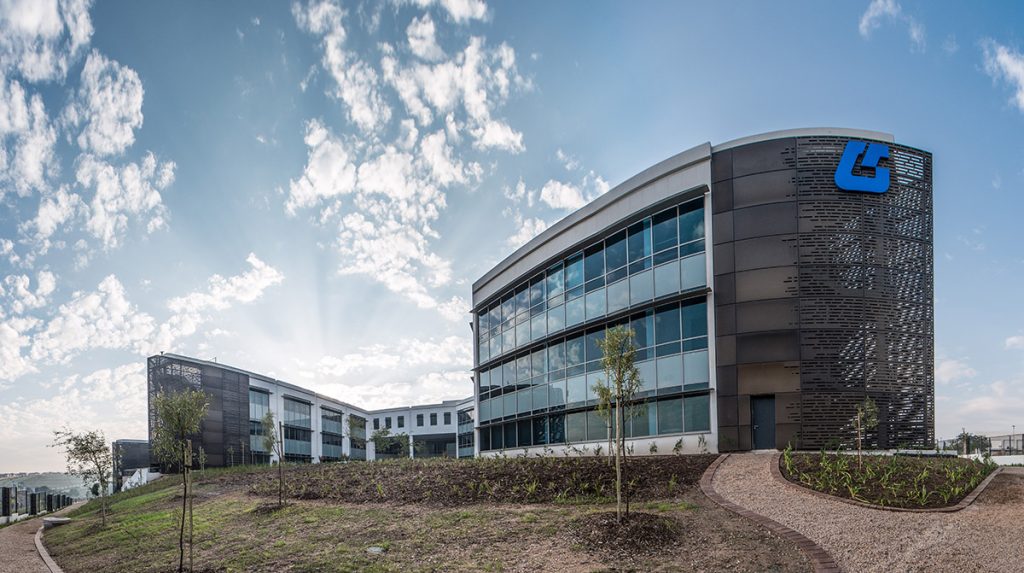R232 million – that’s the projected construction industry output for South Africa in 2023, marking a resilient 5% growth despite recent global challenges. Construction companies in South Africa aren’t just building structures; they’re architecting the nation’s future.

From iconic stadiums that hosted the World Cup to critical infrastructure connecting communities, these industry giants are reshaping the country’s landscape one project at a time.
The Evolution of Construction in South Africa
As a developing nation, South Africa’s construction sector has been instrumental in the country’s post-apartheid transformation. Since 1994, construction companies in South Africa have played a pivotal role in addressing infrastructure backlogs, creating employment opportunities, and driving economic growth. The sector currently employs over 1.4 million people and contributes approximately 4% to the national GDP.
Industry Leaders and Their Landmark Projects
1. WBHO (Wilson Bayly Holmes-Ovcon)

Established in 1970, WBHO stands as South Africa’s largest construction company by market capitalization. Their portfolio includes:
- Moses Mabhida Stadium (Durban) – An architectural masterpiece hosting the 2010 FIFA World Cup
- Mall of Africa (Johannesburg) – The largest single-phase shopping mall development in Africa
- Discovery Head Office (Sandton) – A 5-star Green Star rated building
2. Concor

Formerly Murray & Roberts, Concor leads in construction and infrastructure across South Africa, delivering innovative, high-quality projects in civil and building sectors. The company has shaped South Africa’s landscape through:
- Gautrain Rapid Rail System – A R26 billion infrastructure project
- Huguenot Tunnel – An engineering marvel connecting Paarl and Worcester
- Kusile Power Station – One of the world’s largest coal-fired power plants
3. Raubex Group

Raubex is one of South Africa’s leading infrastructure development and construction materials supply groups. Established in 1974, Raubex listed on the JSE in March 2007 and operates throughout southern Africa and Western Australia.
Specializing in infrastructure development since 1974, Raubex has completed:
- N1 Highway Upgrades – Multiple sections enhancing national connectivity
- Solar Power Plants in Northern Cape – Contributing to renewable energy infrastructure
- Durban Port Expansion – Critical maritime infrastructure development
4. Stefanutti Stocks

Stefanutti Stocks delivers infrastructure development projects to diverse sectors across the built environment in South Africa and neighbouring regions. With a Grade 9 CIDB rating, their notable projects include:
- OR Tambo International Airport upgrades
- Medupi Power Station civil works
- Multiple mining infrastructure projects across Southern Africa
5. Group Five Construction

One of South Africa´s top three construction and materials manufacturers, with an international reputation. Despite recent challenges the company has faced, their legacy includes:
- Cape Town Stadium
- Durban’s King Shaka International Airport
- Multiple renewable energy projects
6. Motheo Construction Group

As South Africa’s leading black female-owned construction company, Motheo has revolutionized the industry through:
- Social housing developments across nine provinces
- The R1.6 billion Vaal River City Development
- Multiple educational facilities including the University of Mpumalanga
- Innovative water infrastructure projects worth over R500 million
7. WK Construction

One of the largest independent construction and engineering companies in Southern Africa, specializing in civil engineering and water infrastructure:
- Transnet Multi-Products Pipeline Project
- Lesotho Highlands Water Project Phase II
- Various municipal water treatment facilities
- Major pipeline installations exceeding 500km in length
8. Power Group

The Power Group is one of the largest privately owned civil engineering, building construction, and property development companies in Southern Africa. With over 40 years of experience, their portfolio includes:
- Century City Mixed-Use Development
- Saldanha Bay Industrial Development Zone
- Multiple affordable housing projects
- Critical road infrastructure in Western Cape
9. Basil Read

Active in the building, civil engineering, roads construction, mixed-use integrated housing developments, opencast mining and related services. Despite recent restructuring, their legacy projects include:
- St Helena Airport
- Gauteng Freeway Improvement Project
- Mining infrastructure developments
- Various residential developments across South Africa
10. Hillary Construction Group

Hillary Construction Group was founded in 1959 in South Africa and now operates locally and in Namibia, Zambia and Botswana.
Its services include the construction of roads, dams, bridges, mining infrastructure, airfields and water treatment plants.
- Construction of Polihali Western Access Road – West
- Upgrading of National Route 1 Section 17. Holfontein interchange to Kroonstad
- Rehabilitation & Upgrade of N3 Toll Road
- Maintenance of Road P278/1 from N1 to Willypoort to Thohoyandou in the Vhembe District
Construction Mafia: A Growing Challenge for South Africa’s Building Sector
The construction sector faces a unique and pressing challenge in the form of “construction mafias” or “business forums.” These organized groups, which began emerging prominently around 2016, have significantly impacted construction companies in South Africa, often demanding up to 30% of project values.
Notable incidents include:
- The R1.65 billion Mtentu Bridge project suspension in 2019
- Disruption of the R2.4 billion German oil storage project in Saldanha
- Multiple site shutdowns in KwaZulu-Natal causing R27.5 billion in project delays
- Forced stoppages at renewable energy sites in the Northern Cape
These groups typically operate by:
- Demanding local workforce hiring quotas
- Insisting on subcontracting arrangements
- Using intimidation tactics at construction sites
- Threatening project managers and workers
The impact on the industry has been substantial:
- Project costs have increased by 15-20% on average
- Insurance premiums have risen significantly
- Many international investors are reconsidering their involvement
- Smaller construction companies are particularly vulnerable
Industry Response:
- Formation of the Construction Sector Anti-Crime Forum
- Enhanced security measures at major project sites
- Collaboration with law enforcement agencies
- Development of standardized protocols for community engagement
This challenge has prompted many construction companies in South Africa to implement more robust security measures and community engagement strategies, though finding a lasting solution remains a priority for the sector’s sustained growth.
Economic Impact and Industry Evolution
The construction sector in South Africa is undergoing a remarkable transformation, driven by technological innovation and sustainable practices. Green building certifications have surged by 60% since 2018, with major construction companies leading the charge in environmental responsibility.
Companies are increasingly integrating renewable energy solutions into their projects, while water-efficient construction methods have become standard practice in response to the country’s water scarcity challenges.
Digital transformation is revolutionizing the industry. Construction companies are embracing Building Information Modeling (BIM) to improve project visualization and reduce errors.
Drone technology has become instrumental in site surveying and project monitoring, while IoT sensors are being deployed to track equipment efficiency and ensure worker safety. This digital evolution has resulted in a 30% improvement in project delivery times and significant cost reductions.
Skills development has become a cornerstone of the industry’s growth strategy. Major construction companies are investing heavily in training programs, with over R500 million allocated to skills development in 2022 alone.
These initiatives range from technical apprenticeships to management development programs, focusing particularly on empowering historically disadvantaged communities.
Industry Challenges and Future Opportunities
While the sector faces significant challenges, including economic volatility and skills shortages, several positive developments are shaping its future. The government’s R791 billion infrastructure commitment provides a strong foundation for growth, while the African Continental Free Trade Area opens new opportunities for cross-border expansion.
Sustainable construction has emerged as a major growth driver, with green building projects commanding premium rates and attracting international investment. Construction companies are also benefiting from innovative financing models, including public-private partnerships and green bonds.
Looking Forward: The Next Decade of Construction
The future of South African construction is being shaped by several key trends:
The rise of smart cities has created demand for integrated infrastructure solutions, with construction companies adapting their capabilities to meet these complex requirements. Public-private partnerships are becoming increasingly sophisticated, allowing for more ambitious project scopes and better risk management.
Regional expansion opportunities abound, particularly in Sub-Saharan Africa, where South African construction expertise is highly valued. Technology integration continues to accelerate, with artificial intelligence and automation becoming essential tools for project management and execution.
Furthermore, the industry is seeing a shift toward modular and prefabricated construction methods, which promise to reduce costs and accelerate project completion times. This evolution is particularly relevant for addressing South Africa’s housing shortage and infrastructure needs.
Education is the Key to Success: A Holistic Perspective
Conclusion
The future of construction companies in South Africa looks promising despite current challenges. With government backing, technological advancement, and a focus on sustainable development, the sector is set to continue its crucial role in national development.
As South Africa moves towards its Vision 2030 goals, these construction giants will remain instrumental in building not just structures, but the very foundation of the nation’s progress.
Get the latest entrepreneurial success stories, expert tips, and exclusive updates delivered straight to your inbox — Sign up for Entrepreneur Hub SA’s newsletter today!



1 Comment